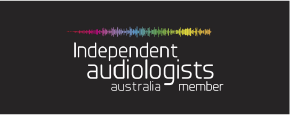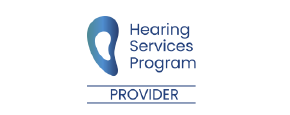Are you looking for a hearing test in Woody Point?
Are you having difficulty communicating? Our expert audiologists at Hearing Help can help improve your hearing clarity. Book your consultation today and reconnect with the sounds and people you love!
Hearing Test in Woody Point Brisbane
Are you looking for Hearing Test in Woody Point Brisbane? We are conveniently located within the Newport Physio and Health clinic at Newport Marketplace. At Hearing Help, our experienced audiologists and hearing specialists provide comprehensive hearing tests and assessments to individuals in Woody Point, Brisbane. Regular hearing tests are crucial for maintaining overall well-being, as undiagnosed hearing loss can lead to cognitive decline, social isolation, and depression. Our team utilises the latest technology to accurately diagnose and treat hearing-related issues. We offer a range of services, including pure-tone audiometry, speech audiometry, and tympanometry. By understanding the importance of hearing health and taking proactive measures, individuals can preserve their hearing and improve their quality of life, and our team is here to guide them every step of the way.
About Hearing Help
Committed to restoring the richness of sound in individuals’ lives, Hearing Help is a dedicated provider of comprehensive hearing services. Our team of experienced audiologists and hearing specialists are passionate about helping people overcome hearing difficulties and improving their overall quality of life. We understand the impact that hearing loss can have on daily interactions, relationships, and overall well-being, which is why we strive to provide personalised care and attention to each of our clients.
Our extensive range of services includes hearing assessments, hearing aid fittings, and ongoing support and maintenance. We utilise the latest technology and innovative methods to ensure accurate diagnoses and effective treatment plans. At Hearing Help, we prioritise building strong relationships with our clients, taking the time to understand their unique needs and concerns. By working together, we aim to empower individuals to take control of their hearing health and rediscover the joy of sound. Our mission is to provide compassionate, expert care that exceeds expectations and makes a meaningful difference in the lives of our clients.
Why Choose Hearing Help?
Hearing Help prioritises genuine, client-centred care and “Best Practices” in its local independent Audiology clinic. Located at Newport Marketplace, they cater to the North Brisbane and Moreton Bay regions, providing services including hearing tests for adults and children, tinnitus assessments, and ear plug fittings. The clinic is dedicated to assisting the local community with unbiased advice and a wide range of products.
Importance of hearing health and regular hearing tests
Maintaining good hearing health is crucial for overall well-being and quality of life. Regular hearing tests play a significant role in ensuring hearing health is not compromised, as undiagnosed hearing loss can lead to further health issues such as cognitive decline, social isolation, and depression. Furthermore, hearing loss, if left untreated, can also impact personal and professional relationships and daily communication. Scheduling regular hearing tests can help identify any hearing problems early, allowing for timely intervention and treatment to prevent long-term damage. Early detection and management of hearing loss can significantly improve outcomes and enhance overall health and well-being.
What is a Hearing Test?
A comprehensive auditory assessment, commonly referred to as a hearing test, is a thorough evaluation used to measure an individual’s ability to detect and process sound across various frequencies and volumes. Conducted by an audiologist or a hearing specialist, this assessment aims to determine the presence, type, and severity of hearing loss. The test evaluates both peripheral and central auditory processing functions, providing a thorough understanding of an individual’s auditory capabilities.
During the test, a range of auditory stimuli is presented to the individual to measure their ability to identify, localise, and categorise sounds. The testing environment is carefully controlled to ensure accurate and reliable results. The outcome of a hearing test is a hearing threshold measurement, which compares an individual’s hearing with that of normal hearing.
Hearing tests play an essential role in the preventive, diagnostic, and corrective stages of hearing healthcare management. They provide critical insights for developing tailored treatment or intervention plans to improve an individual’s communication skills and manage potential hearing-related problems or limitations. Regular hearing testing ensures timely detection of abnormalities and promotes the adoption of optimal hearing healthcare strategies across different age groups. Accurate diagnosis facilitates the timely and effective implementation of specific care plans.
Types of Hearing Tests
Evaluating auditory function involves various diagnostic procedures, including several types of tests specifically designed to assess the different aspects of an individual’s hearing abilities. These tests allow audiologists to identify hearing problems and recommend the most suitable treatments. Pure-tone audiometry is a fundamental assessment, which measures the softest sounds an individual can detect at different frequencies. Speech audiometry, on the other hand, evaluates how well an individual can understand and repeat words and sentences in various listening conditions.
Other hearing tests include tympanometry, acoustic reflex testing, and otoacoustic emission (OAE) testing. Tympanometry assesses the function of the middle ear, while acoustic reflex testing examines the reflexive response of the middle ear muscles. OAE testing evaluates the function of the cochlea by detecting sounds produced by the inner ear in response to external stimuli. Furthermore, auditory brainstem response (ABR) testing is also used to evaluate the neural pathways of the auditory system. Each of these tests contributes to a comprehensive evaluation of an individual’s hearing abilities and aids in identifying potential hearing problems. A skilled audiologist determines which tests are necessary for a thorough diagnosis and treatment recommendation.
Preparing for Your Hearing Test
As you prepare for your hearing test, it is essential to understand what to expect during the assessment. The process typically begins with your arrival and completion of any necessary paperwork, followed by a series of tests and examinations to evaluate your hearing. By knowing the duration of a typical hearing test and tips for preparation, you can ensure a smooth and stress-free experience.
What to Expect
Prior to your scheduled hearing test, it is essential to understand the testing process and what you can expect during your appointment. A comprehensive hearing test is designed to evaluate your hearing abilities, identify any potential issues, and provide a foundation for further treatment or management.
During your appointment, you can expect to undergo a series of tests, including pure-tone audiometry, speech audiometry, and tympanometry. These tests will assess your ability to hear different sounds, understand speech, and evaluate the function of your middle ear. You may also be required to provide a medical history, including any previous hearing problems, ear infections, or exposure to loud noises.
Additionally, you will have the opportunity to discuss any concerns or symptoms you are experiencing with your hearing specialist. This information will help inform the testing process and ensure that your specific needs are addressed. By understanding what to expect during your appointment, you can feel more comfortable and prepared for the testing process.
A hearing specialist will guide you through the entire process, ensuring your comfort and addressing any concerns you may have.
Description of the process from arrival to completion
Upon arrival, you will be greeted by our friendly staff and asked to complete a brief registration process before commencing your comprehensive hearing test. This registration process typically involves providing personal details and completing any necessary paperwork. After registration, our audiologist will introduce themselves and explain the hearing test process in detail, including what to expect during the test and how the results will be communicated.
The comprehensive hearing test begins with a thorough medical and hearing history to identify any underlying factors that may be contributing to your hearing concerns. Our audiologist will then conduct a visual examination of your ear canals using an otoscope to check for any blockages or abnormalities. Next, you will be seated in a soundproof booth where your hearing thresholds will be assessed using pure tone audiometry. Speech audiometry will also be conducted to evaluate your ability to understand speech in different listening environments.
Duration of a typical hearing test
While the comprehensive hearing test process may seem involved, the actual test typically requires only 45-60 minutes of your time, and this duration can vary depending on the complexity of your hearing concerns and the tests required to assess them accurately. A standard hearing test is usually comprised of several components, including a visual examination of the ear canal, a review of the patient’s medical and hearing history, and a series of audiological tests. These tests assess various aspects of hearing, including pure tone thresholds, speech recognition thresholds, and middle ear function. In some cases, additional specialised tests may be necessary to further evaluate hearing loss or related conditions. Despite the breadth of assessment, most patients find the process efficient, and results are typically available immediately following the test. Upon completion, your audiologist will review the findings with you and discuss any necessary next steps or treatment options.
Tips for preparing for a hearing test
To ensure the most accurate results from your hearing test, it is essential to properly prepare beforehand. This involves several steps that can significantly impact the outcome of your assessment. Firstly, it is crucial to provide your audiologist with a thorough medical history, including any previous hearing issues, ear surgeries, or conditions that may affect your hearing. Additionally, list all medications and supplements you are currently taking, as some may affect your hearing.

Avoid exposure to loud noises at least 24 hours prior to the test, as this can temporarily affect your hearing and skew the results. On the day of the test, arrive early to complete any necessary paperwork and ensure you are relaxed and calm. Also, avoid consuming caffeine or nicotine, as these substances can affect your nervous system and reaction times. Finally, ask a friend or family member to accompany you for support and to help you remember any questions or concerns you may have during the test. By following these steps, you can help ensure your hearing test is accurate and effective.
The Hearing Test Procedure
The hearing test procedure typically begins with an initial consultation, where a comprehensive discussion is held with an audiologist to identify the symptoms, medical history, and specific ear-related concerns of the individual. During this conversation, it is essential to disclose any previous hearing assessments, ear surgeries, or balance problems, as this information will inform the subsequent testing process. The audiologist will then conduct a series of tests, designed to evaluate the individual’s hearing abilities and detect any potential hearing impairments.
Initial Consultation
During your initial consultation, a comprehensive hearing test will be conducted by one of our experienced audiologists to assess the full range of your hearing abilities. This assessment is crucial in identifying any potential hearing issues and determining the best course of treatment. The hearing test is a painless and non-invasive procedure that typically lasts around 30 minutes to an hour.
Our state-of-the-art equipment and technology enable our audiologists to conduct a thorough evaluation of your hearing thresholds, middle ear function, and the neural pathways of your auditory system. The tests we conduct include pure tone audiometry, bone conduction testing, and speech audiometry, among others. These assessments allow us to pinpoint any hearing difficulties you may be experiencing and tailor a treatment plan to address your specific needs. Following the test, our audiologist will carefully review the results with you, explaining the findings and discussing potential treatment options.
Discussion with an audiologist about symptoms and medical history
Prior to conducting the hearing test, a thorough discussion with one of our experienced audiologists will take place to gather detailed information about your symptoms and medical history. This discussion is a crucial step in the hearing test procedure, as it enables our audiologist to understand your specific concerns and identify potential underlying causes of your hearing difficulties.
During this discussion, our audiologist will ask questions about your hearing symptoms, such as when you first noticed difficulties, how often you experience them, and if you’ve noticed any triggers or exacerbating factors. They will also inquire about your medical history, including any previous ear problems, surgeries, or exposure to loud noises. Additionally, they may ask about your family medical history, as some hearing conditions can be hereditary. This comprehensive discussion allows our audiologist to tailor the hearing test to your specific needs and ensures that we obtain accurate and relevant results.
Conducting the Tests
Following a thorough discussion of your symptoms and medical history, our audiologist will begin the hearing test procedure, utilising a range of assessments to evaluate your hearing thresholds, middle ear function, and auditory processing abilities. The first assessment is typically otoscopy, which involves visually examining the outer ear canal and eardrum for any signs of blockages, wax buildup, or other abnormalities.
Next, our audiologist will conduct tympanometry to evaluate middle ear function. This involves gently inserting a small probe into the ear canal to assess the movement of the eardrum and middle ear bones. Acoustic reflex testing may also be performed to measure the reflexive response of the middle ear muscles.
Pure-tone audiometry will also be conducted to determine your hearing thresholds across various frequencies. This involves wearing headphones and responding to a series of sounds presented at different volumes and frequencies. Speech audiometry may also be performed to assess your ability to understand speech in background noise. These tests provide a comprehensive picture of your hearing abilities and help our audiologist determine the best course of treatment.
Post-Test Consultation
Following the completion of your hearing test, our audiologist will conduct a comprehensive review of your test results. During this post-test consultation, we will discuss treatment options and recommendations tailored to your specific hearing needs. Additionally, we will schedule any necessary follow-up appointments to ensure that you receive ongoing support and care.
Treatment Options and Recommendations
What treatment options are recommended following a hearing test, largely depends on the type and severity of the hearing loss, as well as the individual’s overall health and lifestyle. For individuals with mild hearing loss, recommendations may include assistive listening devices, such as hearing aids or personal amplifiers, to enhance sound quality and improve communication. In cases of more severe or permanent hearing loss, options like cochlear implants or implantable hearing devices may be considered.
In addition to amplification solutions, auditory rehabilitation services, such as speechreading or auditory training, may be suggested to enhance auditory processing and communication skills. For individuals with noise-induced hearing loss, recommendations may include wearing ear protection when engaging in loud activities to prevent further damage. Treatment plans are tailored to address the unique needs and goals of each individual, taking into account their specific hearing loss, medical history, and lifestyle considerations.
Scheduling Follow-Up Appointments
Several weeks after the initial hearing test in Woody Point, Brisbane, a post-test consultation is typically scheduled to review test results, discuss treatment progress, and address any ongoing concerns or questions the individual may have. This follow-up appointment allows the audiologist to assess the effectiveness of the recommended treatment plan and make any necessary adjustments. The individual’s progress is evaluated, and any concerns or difficulties they are experiencing with their hearing devices or treatment plan are addressed.
During the post-test consultation, the audiologist may also conduct additional assessments or tests to further evaluate the individual’s hearing. This may include speech audiometry or other specialised tests to assess their ability to understand speech in various environments. The results of these assessments are used to fine-tune the treatment plan and ensure the individual is receiving the best possible outcome. By scheduling regular follow-up appointments, individuals can ensure they receive ongoing support and care, optimising their hearing health and overall quality of life. Regular check-ins also enable the audiologist to identify any changes in hearing levels, allowing for prompt intervention and treatment.
Book an appointment
Ready to hear the world more clearly? Contact Hearing Help today to schedule your personalised hearing consultation. Call us or visit our website to find your path to better hearing. We’re here to help you connect with every sound life has to offer.
Address: Newport Marketplace Shopping Centre
Tenancy M01, 10 Lakeview Promenade, Newport QLD 4020
(located inside Newport Physio rooms)
Phone: 07 3214 3641
Email: hello@hearinghelpredcliffe.com.au










